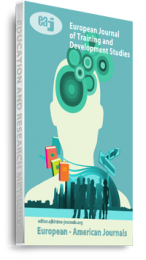Business Education programme in Nigeria requires a proactive and effective assessment that can bridge the gap between theory and practice. This will go a long way in ensuring the correlation between skills and competency displayed by graduates of business education and the certificate they obtain to parade looking for white-collar jobs in the world of competition. This can only be achieved through a well-structured and update of business education curriculum. The curriculum development process include: curriculum content with details of what the teachers are expected to teach and each students expected to learn. Business education graduates should be able to put to practice the skills professed by their certificates. The study examines, concept of curriculum development, types of curriculum development models, principles of curriculum development, trends that will shape curriculum development. Some of the challenges in enhancing the implementation of business education curriculum are; Inadequate funding of business education programme, Poor maintenance of business education equipment, unstructured curriculum in business education and inadequate qualified lecturers. Among others, it was recommended that the university authorities should adequately fund Business education Programmes to enable them have a required facilities for effective teaching and learning and employing adequate qualified teachers to teach in business education programme
Keywords: Business Education, Curriculum Development, Implementation

